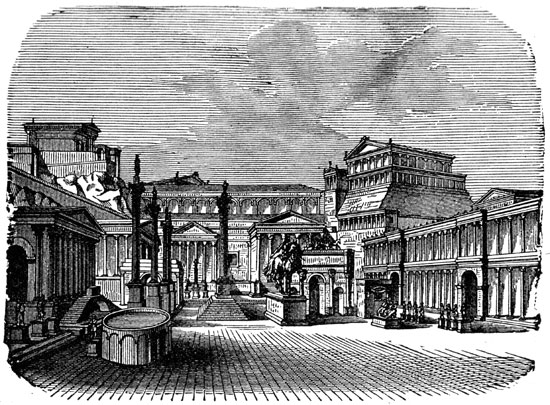Decline of the cities
"As it was with the larger territorial divisions of the empire, so was it with the cities. The empire was made up of hundreds of cities; but the citizens of these towns, with very few exceptions, took neither pride nor interest in imperial affairs. We may say that Rome destroyed city patriotism in antiquity, but without calling into existence any broader sentiment or feeling. Men were no longer willing to die or to live either for their city or for the empire. It was this lack of spiritual ties, binding in a vital union the cities and communities of the empire, that the statesman-historian Guizot maintains was a chief cause of its dissolution." With the first blows of the barbarians it fell to pieces."
"Besides all these divisions in the empire, resulting from the great number of different races and primitive city- states which, during centuries of conquest, Rome had brought under her dominion, there were those divisions of the population into orders or classes, — the rich and the poor, the free and the bond, the titled and the untitled, — which destroyed the homogeneousness of society, and rendered impossible the establishment of a strong unified state. The great majority of the people living under the Roman government had no interest whatsoever in helping to defend and uphold it. The oppressed classes in the provinces everywhere welcomed the barbarians as deliverers."
Rome, Its Rise and Fall By Philip Van Ness Myers 1901
